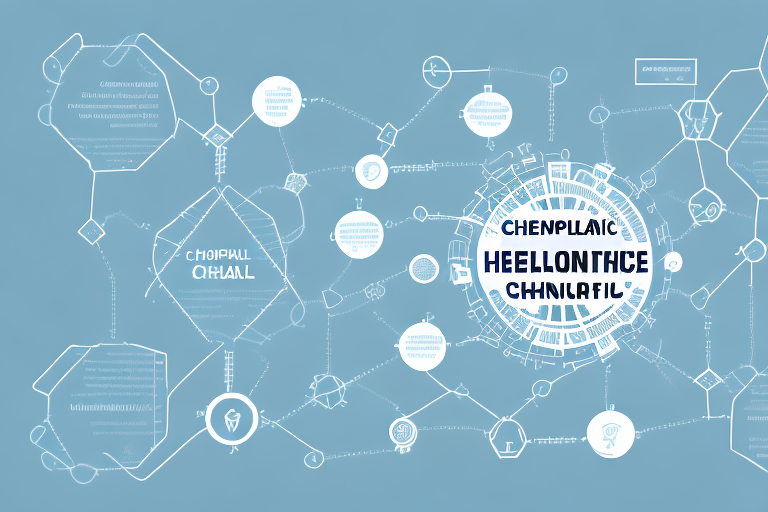What Is Healthcare Logistics? A Comprehensive Guide
Healthcare logistics is a critical component of the healthcare system, enabling the efficient delivery of medical supplies, equipment, and services to patients and healthcare facilities. It encompasses multiple processes, including planning, procurement, transportation, storage, and distribution of medical goods and services, as well as the management of information and finances.
The Importance of Healthcare Logistics: Why It Matters
Effective healthcare logistics management is essential for improving patient outcomes, reducing healthcare costs, and enhancing the overall quality of care. By ensuring the timely delivery of medical supplies, drugs, and equipment, healthcare logistics promotes better patient care and outcomes. Conversely, poor logistics management can lead to delayed treatment, waste, and increased costs, ultimately affecting patient satisfaction and safety.
- Improved Patient Outcomes: Timely access to necessary medical supplies ensures that patients receive prompt and effective treatment.
- Cost Reduction: Efficient inventory management minimizes waste and reduces unnecessary expenditures.
- Enhanced Quality of Care: Reliable logistics support the consistent availability of high-quality medical equipment and supplies.
One key benefit of healthcare logistics is the ability to manage inventory more efficiently. By tracking the usage of medical supplies and equipment, logistics professionals ensure that hospitals and clinics maintain adequate stock levels, preventing shortages and reducing waste, which leads to significant cost savings for healthcare organizations.
Additionally, healthcare logistics plays a crucial role in emergency response situations. During natural disasters, pandemics, or other crises, logistics professionals are responsible for the rapid delivery of medical supplies and equipment to affected areas, helping to save lives and prevent the spread of disease. This makes healthcare logistics an essential component of disaster response efforts.
Understanding the Healthcare Supply Chain
Healthcare logistics is a vital part of the broader healthcare supply chain, which includes all processes involved in the production, procurement, distribution, and consumption of healthcare goods and services. The supply chain encompasses manufacturers, distributors, wholesalers, retailers, healthcare providers, and patients, ensuring that the right products and services reach the right people at the right time.
Challenges in the Healthcare Supply Chain
One of the biggest challenges in the healthcare supply chain is ensuring the quality and safety of products. This is particularly important for medical devices and pharmaceuticals, which can have serious consequences if not properly manufactured, stored, and transported. To address this, many countries have established regulatory bodies, such as the U.S. Food and Drug Administration (FDA), that oversee the production and distribution of healthcare products and enforce strict quality standards.
Cost Management
Healthcare is a significant expense for individuals, governments, and businesses. The cost of healthcare products and services can vary widely based on factors like location, demand, and availability. To manage costs, many healthcare organizations implement supply chain management techniques such as inventory control, demand forecasting, and strategic sourcing to optimize their purchasing and distribution processes and reduce waste.
How Healthcare Logistics Works: A Step-by-Step Guide
- Demand Forecasting and Inventory Planning: Healthcare providers estimate future demand for medical goods and services and plan their orders accordingly. Collaboration with manufacturers and distributors ensures timely delivery of products.
- Receiving and Inspection: Upon receipt, products are inspected, labeled, and stored in appropriate facilities until they are ready for distribution.
- Storage: Medical supplies are stored under conditions that preserve their quality and integrity, such as temperature-controlled environments for sensitive items.
- Distribution: Goods are transported to healthcare facilities, where they are checked for quality and distributed to patients as needed.
- Transportation Management: Ensuring safe and secure transportation involves careful route planning, selection of appropriate vehicles, and adherence to strict safety protocols.
Additionally, healthcare logistics providers must comply with regulatory requirements and maintain accurate records of all transactions. Efficient and reliable delivery of medical goods and services is crucial in supporting the healthcare industry and improving patient outcomes.
The Role of Technology in Healthcare Logistics
Technology plays a pivotal role in healthcare logistics by facilitating the tracking and monitoring of medical goods and services, thereby optimizing the logistics process. Advanced technologies such as barcode scanning, RFID, and GPS tracking enable healthcare providers to manage inventory more effectively and monitor the movement of medical goods.
Advanced Tracking Systems
Implementing RFID technology allows for real-time tracking of medical supplies, reducing the risk of loss and ensuring timely replenishment.
Data Management and Communication
Technologies like electronic health records (EHRs) and cloud-based systems enhance data exchange and communication among providers, patients, and supply chain members, streamlining operations and improving coordination.
Automation and Artificial Intelligence
Automation and AI enable healthcare providers to predict demand, optimize inventory levels, and reduce waste. These technologies also support the delivery of telemedicine services, allowing patients to receive medical care remotely, which has become increasingly important during the COVID-19 pandemic.
The Challenges of Healthcare Logistics and How to Overcome Them
The healthcare logistics process faces several challenges, including supply chain disruptions, limited resources, and regulatory compliance issues. Healthcare providers and supply chain members can overcome these challenges by adopting innovative practices, collaborating closely, and leveraging technology solutions such as predictive analytics.
Temperature-Controlled Transportation
One major challenge is the need for temperature-controlled transportation and storage of certain medical supplies and equipment. This requires specialized equipment and facilities, which can be costly and difficult to maintain. To address this, healthcare providers can partner with logistics companies that specialize in temperature-controlled logistics or invest in their own specialized infrastructure.
Timely and Accurate Delivery
Ensuring the timely and accurate delivery of medical supplies is critical. Delays or errors can have serious consequences for patient care. Implementing real-time tracking and monitoring of shipments, as well as automated inventory management systems, can help ensure that supplies are always in stock and ready for delivery.
Best Practices for Efficient Healthcare Logistics Management
Adopting an efficient and effective logistics management strategy can significantly enhance healthcare logistics. Best practices include:
- Partnering with reputable suppliers and shippers.
- Integrating advanced technology to streamline operations.
- Implementing optimal inventory systems to maintain appropriate stock levels.
- Continuously improving operations through the tracking and monitoring of key performance indicators (KPIs).
Proper Handling and Storage
Ensuring the proper handling and storage of medical supplies and equipment is crucial. This includes maintaining appropriate temperature and humidity levels and following strict protocols for handling and transporting hazardous materials.
Customized Logistics Solutions
Different healthcare facilities, such as hospitals, clinics, and long-term care facilities, have unique needs and challenges. Developing customized logistics solutions that consider factors like patient volume, location, and specialized equipment requirements can enhance efficiency and effectiveness.
Innovations in Healthcare Logistics: What's Changing?
The healthcare logistics industry is undergoing continuous innovation, driven by advancements in technology and evolving healthcare needs. Notable changes include:
Blockchain and Internet of Things (IoT)
Technologies like blockchain and IoT have improved the tracking and monitoring of medical products, ensuring greater transparency and security throughout the supply chain.
Sustainability and Security
The increasing focus on sustainability and security has led to the development of logistics solutions that prioritize environmental responsibility and protect patient safety.
Personalized Medicine
The shift towards personalized medicine involves tailoring medical treatments to individual patients based on their genetic makeup, lifestyle, and medical history. This requires logistics providers to manage a diverse range of specialized products, including personalized medications, genetic testing kits, and medical devices.
Telemedicine
The rise of telemedicine allows patients to receive medical consultations and treatments remotely. Consequently, logistics providers must manage the delivery of medical products and services to patients' homes and remote healthcare facilities.
The Future of Healthcare Logistics: Predictions and Trends to Watch Out For
The future of healthcare logistics is set to become increasingly digital, with the adoption of more sophisticated and intelligent technologies. Key trends include:
- Predictive Analytics and AI: These technologies will enable healthcare providers to better predict demand, manage inventory, and optimize logistics processes.
- Enhanced Traceability: Improved traceability will ensure that medical products can be tracked throughout the supply chain, enhancing safety and accountability.
- Patient-Centric Care: Logistics solutions will increasingly focus on patient needs, ensuring that care is tailored and efficient.
- Collaborative Models: New models of collaboration will encourage closer cooperation among stakeholders, enhancing resilience and efficiency in the supply chain.
Real-World Examples of Successful Healthcare Logistics Implementation
Effective healthcare logistics management has yielded numerous benefits across the industry. For example:
- FDA's RFID Implementation: The U.S. Food and Drug Administration reduced the time taken for regulatory review of new drug applications by using RFID technology to track and trace shipments.
- African Society for Blood Transfusion: By using mobile technology to track donations and manage inventory, the organization improved the management of blood supplies, ensuring that healthcare facilities had the necessary blood supplies when needed.
Key Metrics for Measuring Success in Healthcare Logistics
Measuring key performance indicators (KPIs) helps providers and supply chain members evaluate their efficiency and effectiveness in the healthcare logistics industry. Notable KPIs include:
- On-Time Delivery: The percentage of deliveries made on time.
- Inventory Turnover: The rate at which inventory is used and replenished.
- Logistics Cost as a Percentage of Sales: The proportion of sales revenue spent on logistics.
- Supplier Quality Performance: The reliability and quality of suppliers in meeting specifications and delivery timelines.
Globalization and Its Impact on Healthcare Logistics
Globalization has significantly impacted healthcare logistics, driving the growth of international trade and the movement of people across borders. This has increased the demand for international logistics services and spurred innovation in the sector. However, globalization also introduces challenges such as customs clearance, border regulations, and supply chain security, necessitating innovative approaches to overcome these obstacles.
The Role of Regulations and Compliance in Healthcare Logistics
The healthcare industry is heavily regulated, and logistics management must comply with various regulations and standards to maintain patient safety and quality of care. Key regulatory bodies and standards include:
- U.S. Food and Drug Administration (FDA)
- World Trade Organization (WTO)
- International Air Transport Association (IATA)
- United Nations Economic Commission for Europe (UNECE)
- International Atomic Energy Agency (IAEA) for radiological safety.
Compliance with these regulations ensures that healthcare logistics operations adhere to international standards, thereby safeguarding patient health and maintaining the integrity of the supply chain.
Collaborative Approaches to Streamlining the Healthcare Supply Chain
Streamlining the healthcare supply chain requires collaboration among stakeholders, including healthcare providers, manufacturers, distributors, logistics service providers, and patients. Successful collaborations enable stakeholders to share information, reduce redundancies, and improve overall efficiency and patient outcomes.
Joint Sourcing
Collaborative approaches such as joint sourcing allow organizations to combine their purchasing power, negotiate better terms, and reduce costs.
Technology Platforms
Leveraging technology platforms facilitates seamless information sharing and coordination among supply chain members, enhancing transparency and responsiveness.
By adopting collaborative strategies, the healthcare supply chain can become more resilient, cost-effective, and capable of delivering high-quality care.
Case Studies: Successful Implementation of Innovative Solutions in Healthcare Logistics
Implementing innovative healthcare logistics solutions can lead to significant benefits. Notable examples include:
- UNICEF and UPS Vaccine Delivery System: In Ghana, UNICEF and UPS developed an electronic vaccine delivery system that allowed real-time tracking of immunizations, resulting in over 4 million children being immunized.
- Zipline's Drone Deliveries in Rwanda: Zipline implemented drone deliveries of medical supplies to remote locations in Rwanda, enabling the delivery of critical medical care within just 15 minutes.
Conclusion
Healthcare logistics is essential to the healthcare system, with the potential to transform patient outcomes, reduce costs, and enhance the overall quality of care. By adopting innovative practices, embracing technological solutions, fostering collaboration, and ensuring regulatory compliance, healthcare organizations can achieve greater efficiency and effectiveness in managing logistics operations, ultimately benefiting patients and the broader healthcare ecosystem.




















